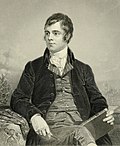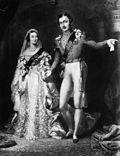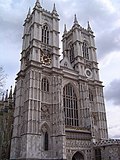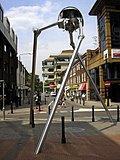Portal:United Kingdom
The United Kingdom Portal
 |
 |
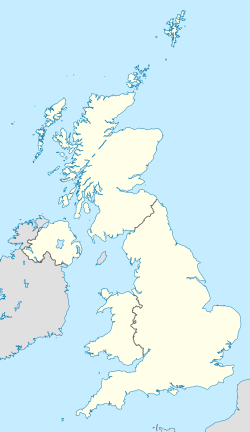
| |
The United Kingdom of Great Britain and Northern Ireland, commonly known as the United Kingdom (UK) or Britain, is a country in Northwestern Europe, off the coast of the continental mainland. It comprises England, Scotland, Wales, and Northern Ireland. The UK includes the island of Great Britain, the north-eastern part of the island of Ireland, and most of the smaller islands within the British Isles, covering 94,354 square miles (244,376 km2). Northern Ireland shares a land border with the Republic of Ireland; otherwise, the United Kingdom is surrounded by the Atlantic Ocean, the North Sea, the English Channel, the Celtic Sea, and the Irish Sea. The UK maintains sovereignty over the British Overseas Territories, which are located across various oceans and seas globally. The United Kingdom had an estimated population of over 68.2 million people in 2023. The capital and largest city of both England and the United Kingdom is London. The cities of Edinburgh, Cardiff, and Belfast are the national capitals of Scotland, Wales, and Northern Ireland, respectively.
The UK has been inhabited continuously since the Neolithic. In AD 43, the Roman conquest of Britain began; the Roman departure was followed by Anglo-Saxon settlement. In 1066, the Normans conquered England. With the end of the Wars of the Roses, the English state stabilised and began to grow in power, resulting by the 16th century in the annexation of Wales, and the establishment of the British Empire. Over the course of the 17th century, the role of the British monarchy was reduced, particularly as a result of the English Civil War. In 1707, the Kingdom of England and the Kingdom of Scotland united under the Treaty of Union to create the Kingdom of Great Britain. In the Georgian era, the office of prime minister became established. The Acts of Union 1800 incorporated the Kingdom of Ireland to create the United Kingdom of Great Britain and Ireland in 1801. Most of Ireland seceded from the UK in 1922 as the Irish Free State, and the Royal and Parliamentary Titles Act 1927 created the present United Kingdom.
The UK became the first industrialised country and was the world's foremost power for the majority of the 19th and early 20th centuries, particularly during the Pax Britannica between 1815 and 1914. The British Empire was the leading economic power for most of the 19th century, a position supported by its agricultural prosperity, its role as a dominant trading nation, a massive industrial capacity, significant technological achievements, and the rise of 19th-century London as the world's principal financial centre. At its height in the 1920s, the British Empire encompassed almost a quarter of the world's landmass and population, and was the largest empire in history. However, its involvement in the First World War and the Second World War damaged Britain's economic power and a global wave of decolonisation led to the independence of most British colonies. (Full article...)
Featured article
Holkham Hall, Norfolk, England, is an 18th-century country house built in the Palladian style for Thomas Coke, 1st Earl of Leicester by the collaborating architects William Kent and Richard Boyle, 3rd Earl of Burlington. It is one of England's finest examples of the Palladian revival style of architecture, the severity of the design being closer to Palladio's ideals than many of the other numerous Palladian style houses of the period. The Holkham estate, formerly known as Neals, had been purchased by Sir Edward Coke, the founder of the family fortune, in 1609. It remains today the ancestral home of the Coke family, the Earls of Leicester of Holkham. (Full article...)
Featured biography
Ernest Augustus I of Hanover (1771–1851) was King of Hanover from 20 June 1837 until his death. He was the fifth son and eighth child of George III, who reigned in both the United Kingdom and Hanover. As a fifth son, initially Ernest seemed unlikely to become a monarch, but Salic Law, which debarred women from the succession, applied in Hanover and none of his older brothers had legitimate male issue. Ernest was born in Britain, but was sent to Hanover in his adolescence for his education and military training. While serving with Hanoverian forces in Wallonia against Napoleon, he received a disfiguring facial wound. In 1799, he was created Duke of Cumberland and Teviotdale. Although his 1815 marriage to the twice-widowed Frederica of Mecklenburg-Strelitz met with the disapproval of his mother, Queen Charlotte, it proved a happy relationship. Ernest was active in the House of Lords, where he maintained an extremely conservative record. There were persistent allegations (reportedly spread by his political foes) that he had murdered his valet and had fathered a son by his sister. Before Victoria succeeded to the British Throne, it was rumoured that Ernest intended to murder her and take the Throne himself. When King William IV died on 20 June 1837, Ernest ascended the Hanoverian Throne. Hanover's first ruler to reside in the kingdom since George I, he had a generally successful fourteen-year reign, but excited controversy when he dismissed the Göttingen Seven for agitating against his policies. (Full article...)
General images -
Subportals
WikiProjects
Things you can do
- Visit the British Wikipedians' notice board.
- The noticeboard is the central forum for information and discussion on editing related to the United Kingdom.
- Comment at the British deletion sorting page.
- This page lists deletion discussions on topics relating to the United Kingdom.
Featured pictures
Did you know -

- ... that before Fred Thomas became an MP, he was the Royal Marines' light heavyweight boxing champion?
- ... that when Westminster City Council in London agreed to use "global majority" as a more inclusive term than BAME or "ethnic minority", a Conservative MP called it "deeply sinister"?
- ... that a yellow-spotted emerald specimen was found for the first time in the United Kingdom in 2018, when a wildlife photographer used Twitter to identify it?
- ... that Elizabeth II's childhood toys at 145 Piccadilly included 30 toy horses and a farm set collected from Woolworths?
- ... that, before same-sex unions were legally recognised in the UK, the London Partnership Register allowed nearly 1,000 couples to celebrate their relationships?
- ... that the 1st Armoured Division of the British Army chose a white rhinoceros on a black oval as their insignia?
In the news
- 16 April 2025 –
- The United Kingdom suspends the import of cheese and meat products from the European Union to prevent the spread of foot-and-mouth disease. (BBC News)
- 16 April 2025 – Transgender rights in the United Kingdom, For Women Scotland Ltd v The Scottish Ministers
- The Supreme Court of the United Kingdom rules that legal gender is based upon biological sex for the purposes of the Equality Act 2010. (BBC News)
- 15 April 2025 – Sudanese civil war, Foreign aid to Sudan
- The European Union and its member states pledge €522 million (US$590 million) and the United Kingdom pledges £120 million (US$141 million) in humanitarian aid to Sudan to deliver food and supplies to over 650,000 internally displaced Sudanese people affected by the fighting between the Rapid Support Forces and the Sudanese Armed Forces. The two groups also call for an immediate ceasefire to end the war. (DW) (AP)
- 14 April 2025 – Russian invasion of Ukraine
- United Kingdom and the Russian invasion of Ukraine
- The United Kingdom sends £752 million ($990 million) to Ukraine for the purchase of surface-to-air missiles, artillery and spare parts for fighter aircraft, as part of an international loan programme funded primarily through seized Russian financial assets. (Reuters)
- 14 April 2025 – July Revolution
- A court in Dhaka, Bangladesh, along with the Anti-Corruption Commission, issues an arrest warrant for Tulip Siddiq, a United Kingdom MP who is the niece of ousted former leader Sheikh Hasina, for corruption allegations. Siddiq has rebuked the arrest warrant and called it a "smear campaign" against her. (DW) (BBC News)
Categories
Other UK-connected Wikipedias
Wikimedia
The following Wikimedia Foundation sister projects provide more on this subject:
-
Commons
Free media repository -
Wikibooks
Free textbooks and manuals -
Wikidata
Free knowledge base -
Wikinews
Free-content news -
Wikiquote
Collection of quotations -
Wikisource
Free-content library -
Wikiversity
Free learning tools -
Wikivoyage
Free travel guide -
Wiktionary
Dictionary and thesaurus















